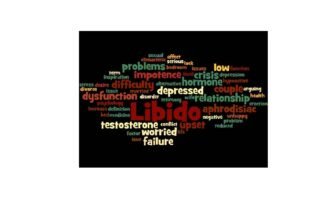Secret To Effective Weight Loss: The Math of Calorie Deficit!
People who struggle with body weight issues most often get a lot of unsolicited advice on how to shed off that excess weight fast. This advice usually sounds like old wives’ tales, as they have no scientific backing. Some say to follow crash diets, go on liquid diets or stop eating altogether, but it is highly recommended not to fall for such a scam, and there is no shortcut.
There are no magical drinks, cookies, or pills that can help burn off all the excess weight. However, it is necessary to be mindful of the choices they make when starting a weight loss journey. They should go with scientifically proven methods and not just follow weight loss fads blindly.
Weight loss is more math than science- The concept of calorie deficit.

Theoretically speaking, weight loss works according to the principle of calorie deficit. The concept of calorie deficit is more mathematical than scientific and follows the basic formula of “burn more calories than you consume” or, in other words, “calories in should be less than calories out.” A good way to keep track of this deficit is by monitoring the Total Daily Energy Expenditure (TDEE).
Even though it is not as simple as it sounds. The metabolism of calories works differently for everyone and is dependent on the following variables-
Basal metabolic rate (BMR): BMR is the amount of energy the body uses to keep all the basic processes functioning properly.
Muscle-to-fat ratio: This factor can be determined using the BMI (Body mass index). Individuals who have more muscle than fat burn calories faster than those who have more fat than muscles.
Level of activity: The more a person is active, the more calories they will burn.
Hormonal function: Many bodily functions like regulation of blood sugar levels, sleep-wake cycle, and stress management are controlled by hormones. These chemical messengers decide how the calories that are used for these processes are metabolized.
Is weight loss different from fat loss?
Even though the terms “weight loss” and “fat loss” are used interchangeably in most cases, they are very distinct from each other.
Weight loss is measured by an overall drop in body weight, which could either be caused by losing water weight, losing muscles, losing fat, or losing bone mass/density. Considering these factors that can lead to weight loss, it can be said that weight loss is not always healthy.
On the other hand, fat loss, as it sounds, is a reduction in the overall body fat. Fat loss is indicated using a metric called body fat percentage. This is measured along with the lean muscle mass a person has.
Moreover, fat loss and weight loss are also dependent on the fitness goals of an individual. Fat loss is often the way to go if the main target is achieving muscle definition, while weight loss can be due to medical reasons also.
How to cut calories without cutting the flavor?
Food is the major source of fuel for the body. Along with supporting the vital function of providing nutrition to different organs, it also feeds the satiety center in the brain. Food is required for both physical and mental well-being.
When trying to lose weight, eating less and eating good both are equally important. Not catering to the tastebuds might only lead to more unhealthy cravings. So, what to do in that case? There are plentiful options that can be used as healthy alternatives to unhealthy choices.
For example, refined grains can be replaced with whole grains; unhealthy oils can be replaced with clarified butter and coconut oil; processed sugar can be replaced with natural sweeteners and baking instead of frying.
These little changes in the diet will help to keep the flavor intact and also keep one full for longer, so they do not give in to unhealthy cravings.
How crash diets can do more harm than good?
There are many fad diets like egg diet, cabbage diet, soup diet, Hollywood juice diet, etc., doing the rounds on the internet. These diets claim to help one lose a certain amount of weight in a week or so. Not only are these diets extremely unhealthy, but they can also cause nutritional deficiencies in the long run.
Moreover, they might provide the illusion of weight loss by restricting an individual’s dietary intake, but unfortunately, this weight loss seldom results in actual fat loss. It is only a loss of muscle mass and water weight in most cases, and this weight comes back as soon as one goes back to eating normally. These diets can do a number on the metabolism, so it is always better to stay away from them.
Don’t kill the mood; kill cravings.
Resisting unhealthy cravings is way more difficult than it sounds. Some types of foods are merely consumed for the psychological pleasure they provide, and these foods are often unhealthy, which can hinder one’s weight loss goals.
However, craving for unhealthy foods is not always a sign of weak will; sometimes, it can also be indicative of nutritional deficiencies. Either way, in this case, the body desires something which it is being deprived of.
To kill cravings, one should ensure they are consuming enough calories, so they do not get hungry often. Additionally, they should also avoid restrictive diet and keep their bodies and minds fulfilled, so it doesn’t feel deprived. Apart from making these healthy choices, one should not forget to enjoy their food because it is alright to have a cookie once in a while.
Think twice before you pop that pill
One should always beware of those magic potions and pills that a brand promises for quick weight loss. Scientific research has proven there is no quick way to lose weight that is both healthy and safe. Supplement brands only use these tall claims as nasty marketing gimmicks.
FDA does not approve of these OTC supplements as, according to it, they do not work and might even be dangerous. Moreover, some federal regulators have cautioned against the drugs used as ingredients in many diet supplements because they are not approved for use in the United States.
Final thoughts- Burn it out, don’t burn out.
A healthy balance of diet, workout, and rest can do wonders for the body. Rushing with weight loss does not bring quicker and more permanent results. Patience and consistency are the keys when one is on a weight loss journey, and the body surely rewards perseverance. The results will be slow, but they will be steady and long-lasting, which will improve overall health and well-being in the long run.







